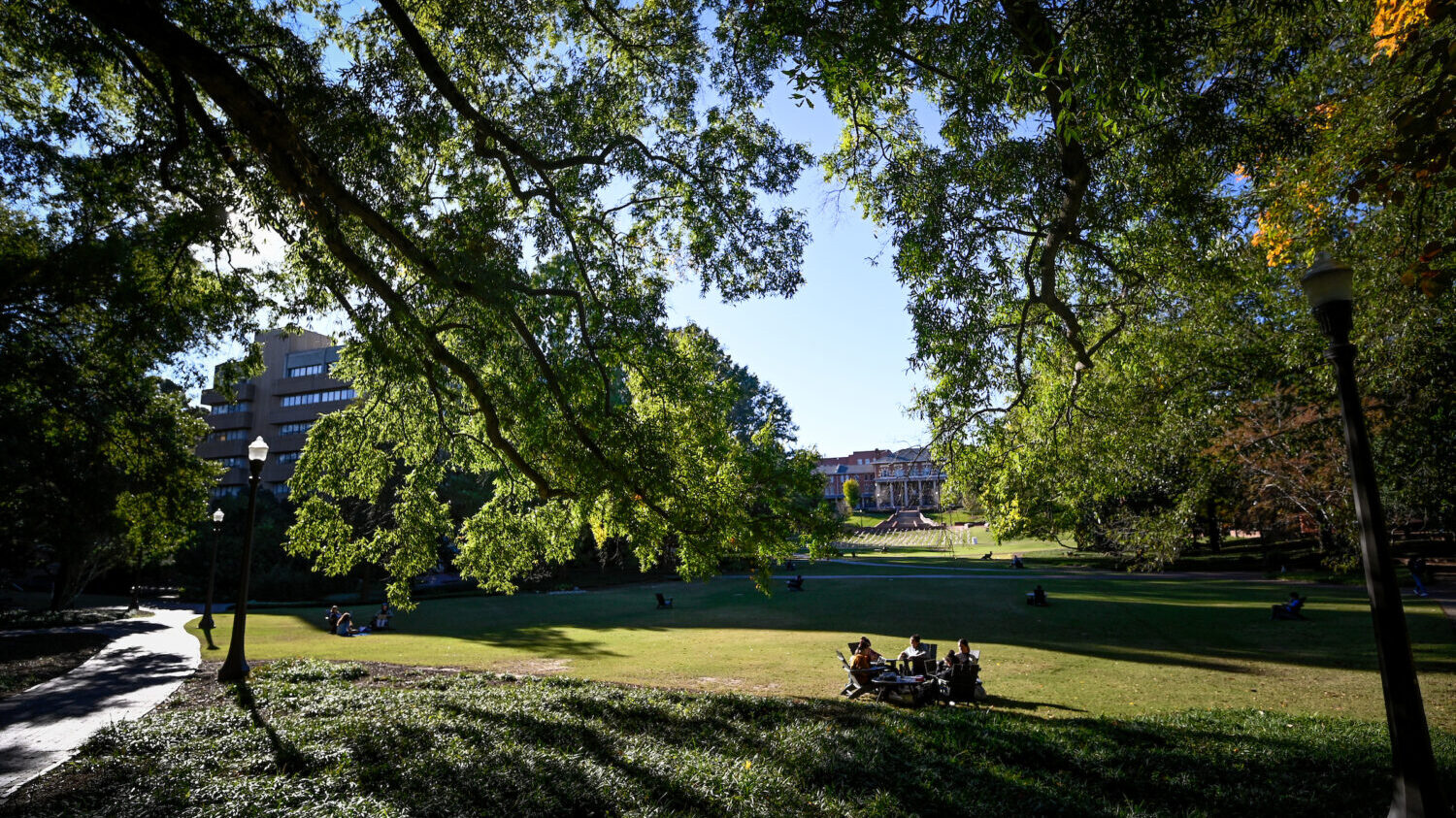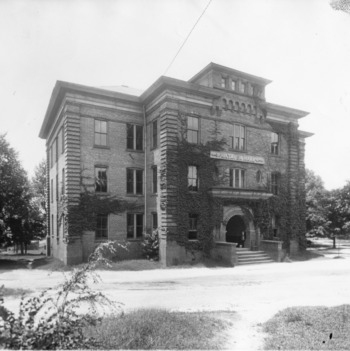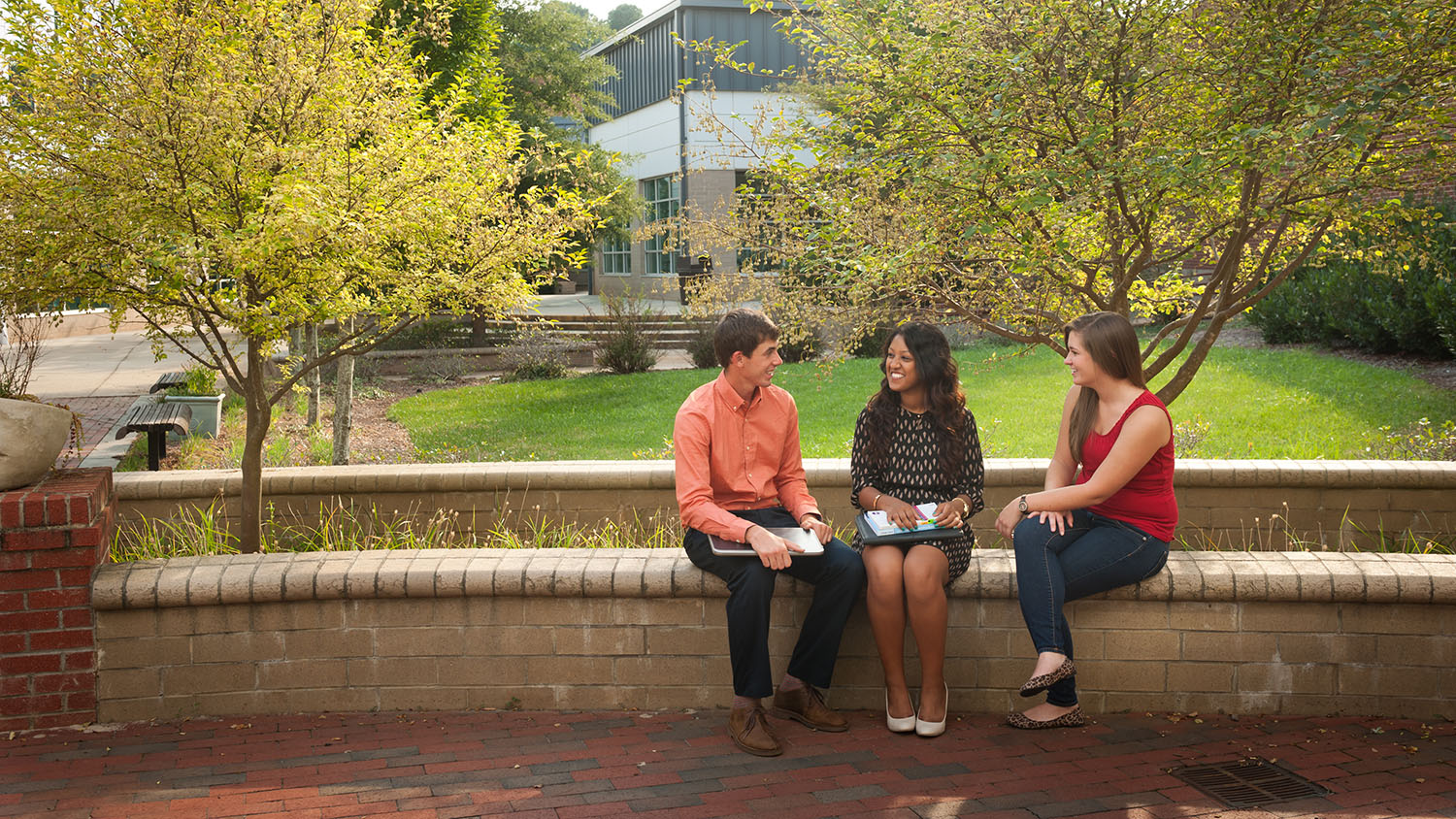Faculty Spotlight: Stacy De Coster

I had the great opportunity to interview Dr. Stacy De Coster and learn more about her research and work in our department. Dr. De Coster is a professor of sociology and the director of undergraduate programs.
Dr. De Coster found her interest in sociology and philosophy when she went to a liberal arts college as a first-generation college student. Her father worked in a paper mill and was passionate about worker’s rights. Seeing his activism in the labor union, particularly during the International Paper strike, explains why she fell in love with Marxism when taking her first classical sociological theory class. She also loved that sociology had a practical element focused on social justice, which was embedded in the work of one of her professors who taught courses on social praxis and started a social justice/homeless shelter where several students volunteered regularly.

Graduate school was a struggle at first for Dr. De Coster because the emphasis of sociology seemed to be less on social justice and more on theory and research. She stuck it out, and eventually met her mentor, talked through her struggles, and landed on research interests that were meaningful to her and allowed her to keep focused on links between sociology as an intellectual endeavor and a social practice. She began studying gender as a system of social control and applied this understanding to delinquency, depression and sexual harassment while in graduate school.
Dr. De Coster started with an interest in gender but realized that you cannot study gender without considering intersectionality, which led her toward the study of how intersections of race, ethnicity, place, gender, and social class influence everyday lives, interactions, emotions, and behaviors. Some of Dr. De Coster’s recent work focuses on intimate partner violence, women’s incarceration and reentry (with an emphasis on how gender, race, ethnicity, and motherhood intersect as powerful systems of social control), and how economic and social resources in extended social networks prove relevant for juvenile offending.
In her role as director of undergraduate programs, she works with people across the college and throughout the UNC System to ensure that students’ curricular needs are met. A recent project she was part of focused on creating a crosswalk to help students transfer credits across universities in the UNC System to ensure their work transfers efficiently. Dr. De Coster is also involved in new course approvals, assessing syllabi to ensure they meet various stated goals for the social sciences and diversity, reviewing courses students take in the study abroad program to ensure they can receive transfer credits, and engaging in the assessment of the sociology and criminology undergraduate degree programs to ensure that students are learning what our curriculum promises.
She also has been working with criminology colleagues and our coordinator of advisors to keep up with the considerable growth in criminology majors and minors we have witnessed over the past years, a trend that is continuing here at NC State as well as nationally. Students come to criminology for a lot of reasons, and Dr. De Coster sees her classroom teaching as a form of praxis wherein students learn about pressing issues of inequality in our criminal justice system and how they might disrupt those inequalities. This is particularly important for students interested in pursuing careers in law, criminal justice, politics, and nonprofits.
Criminology helps students learn that one cannot understand society and issues of inequality without a baseline understanding of the criminal justice system as a major contributor to inequality, as well as a mirror of the intersecting inequalities of race, ethnicity, poverty, gender, sexuality, and place produced by this institution, as well as other core social institutions. Dr. De Coster is glad to see the field grow. Sociology and criminology are both fields that help us stay on top of major social problems and pressing issues of inequality by taking a critical and factual approach to how they emerge and how we might do better. Her main advice to students is to use their sociological imagination always and assess “what is happening, how it is happening, who it is impacting, what might happen next, and what we can do to change pessimistic pathways.”
During our interview, I loved when Dr. De Coster talked about her college experience. She said, “I got to learn that sociology is really theoretically and empirically rooted, but I also got to learn that you can make a difference with sociology.” That’s also what I believe and see as the best part of sociology.
If you ever have a chance to take Dr. De Coster’s class or interact with her, you will never be disappointed with what you learn from her!

This article is by Yuanyuan Li, a Department of Sociology and Anthropology student ambassador majoring in sociology and minoring in political science.
- Categories:


